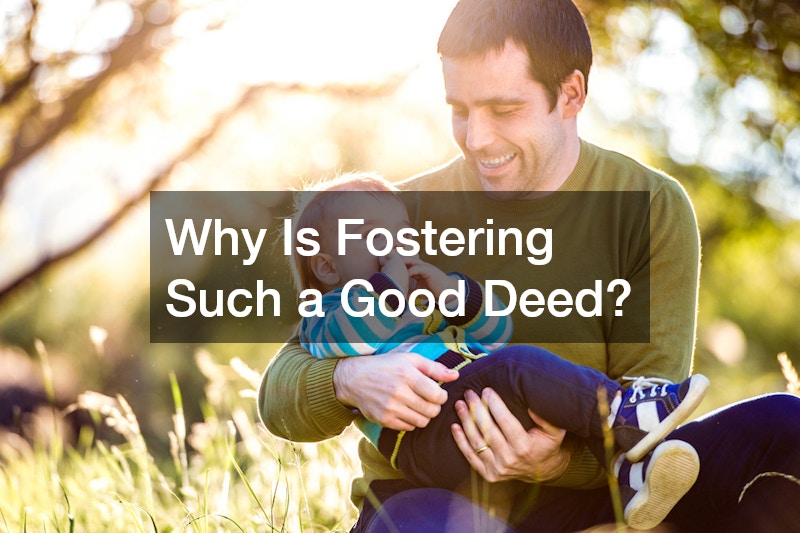Fostering plays a critical role in society, offering temporary homes to children and animals in need. This article explores the various reasons why fostering is considered such a noble act, addressing common concerns and highlighting the profound impact it can have.
How Does Fostering Benefit Children and Animals?
Providing a Safe Environment
Fostering ensures that vulnerable children and animals have a secure and stable environment, which is essential for their development and well-being. In many cases, the foster home might be the first wonder of safety these beings experience. The sense of security provided allows for healthy development and reduces anxiety.
This nurturing setting enables children and animals to relax and express themselves freely. For children, particularly, a safe harbor can mean the difference between thriving and mere survival. The assurance of a reliable and consistent environment forms the bedrock of their future emotional stability.
Animals too benefit immensely from fostering, as it removes them from high-stress situations like shelters. A calm home environment can assist in healing physical and emotional wounds they have suffered. Foster homes give them space to flourish, ultimately leading to happier, healthier pets.
Emotional and Social Support
Foster carers provide emotional support and facilitate social interactions, which are crucial for the mental and emotional growth of children and animals. The foster family becomes an essential source of companionship. This experience helps develop social etiquette and emotional resilience.
Moreover, children in foster care often learn to form positive relationships through the genuine support provided by foster parents. Their social skills are honed as they engage in various community and familial activities. Similarly, foster animals learn to trust and interact with humans productively.
Through fostering, children and animals break through previous barriers of isolation. They begin to form valuable connections that pave the way for future friendships. This emotional bond is nourishing and helps in long-term personal development.
Facilitating Permanent Placements
By fostering, carers help prepare children and animals for permanent adoption, smoothing the transition into a new family environment. Foster care acts as a bridge, offering a temporary haven while preparing them for long-term homes. This preparation is crucial for a smooth transition.
The insights from a foster family often aid adoption agencies in matching children and animals with suitable adoptive families. Foster carers understand the preferences and personalities involved, making the transition much more effective. This meticulous preparation is key to successful adoptions.
For many children and animals, foster care is the prelude to permanent happiness. The love and instruction they receive in a foster home build the foundation for a smoother adoption process. Consequently, they adapt quickly and comfortably to their forever homes.
What Motivates People to Become Foster Carers?
Desire to Make a Difference
Many people choose to foster because they have a strong desire to help and make a positive impact in the lives of those in need. Fostering often stems from a deeply rooted desire to effect change on a personal level. Knowing the difference one makes is immensely fulfilling.
Individuals often feel compelled to contribute personally to the well-being of their communities. They are driven by empathy and kindness, striving to offer love and safety to those who have none. This commitment to service is a hallmark of fostering individuals.
Potential foster carers see the impact they’ve made materialize in the transformations of those they care for. The personal satisfaction garnered from such moments is unparalleled. Fostering becomes a lifestyle of giving and receiving emotional rewards.
Personal Growth and Learning
Foster carers often experience personal growth, gaining new skills and insights from their fostering journey. The challenges faced in fostering continually enhance their patience and empathy. This enriching experience leads to significant personal transformation.
Meanwhile, foster carers often acquire practical parenting skills and broaden their understanding across generations and species. The learning curve involved in being adaptable and resourceful is both thrilling and satisfying. This journey fosters self-discovery and establishes lifelong personal development.
Faced with various situations, foster carers learn communication, managerial, and advocacy skills. This broad skillset is invaluable and extends into other facets of life. The mutually rewarding experience epitomizes constant growth as they flourish alongside their fostered dependents.
Community and Support Networks
Fostering can provide individuals with a sense of belonging to a community of like-minded people and support from fellow foster carers. This sense of community is vital, providing encouragement and shared experiences. Together, they form a support system integral to healthy fostering experiences. Find a community nearby today: https://maps.app.goo.gl/xz4qebidf1gyv4tg9
Engagement in fostering opens doors to numerous community resources and networking opportunities. Foster carers bond over triumphs and challenges, providing critical emotional support to one another. Such robust relationships offer an invaluable layer of human connection.
In turn, these communities often facilitate events and activities that benefit foster children and animals. Collectively, they engage in philanthropy and advocacy, fostering a more stable and empathetic society. This camaraderie reaffirms the invaluable benefits of engaging in fostering.
Fostering is indeed a good deed with far-reaching effects. It benefits both the cared-for individuals and those providing care, fostering hope, stability, and a brighter future for everyone involved.
